‘Broken and traumatised’: Brutal court process exposed
Sexual abuse and assault survivor advocates are exposing exactly what they had to go through in court and it’s shameful for Australia. Warning: Distressing
EXCLUSIVE
Sexual abuse and assault survivor advocates from across Australia have joined news.com.au’s Justice Shouldn’t Hurt campaign, backing our call for the NSW Government to change how children are treated during trials involving sexual abuse and assault charges.
On Monday, news.com.au launched its exclusive campaign by spotlighting the plight of two sisters – Rose and Pippa Milthorpe – who at age seven and 11 were left “broken and traumatised” after facing days of brutalising cross examination.
Justice shouldn’t hurt, but for children in Australia, it does. The NSW government knows how to fix this problem, but have failed to do so. That’s why news.com.au is calling for law reform to make it easier for child victims of sexual abuse to give evidence. Join the movement and sign the petition here.
Six years later, in July, the sisters sought court permission to say their real names when sharing their story with approved media – a process which cost about $45,000 in legal fees, supported by news.com.au and the #LetUsSpeak campaign (donations can be made here).
Now, the sisters have launched a petition calling for the expansion of a program proven to reduce the trauma of court for children.
Today, in response, several high profile survivor advocates have joined the fight and call for reform – including Saxon Mullins, Bri Lee, Nicole Lee and Janelle O’Connor. They say that court is often traumatising for children in sexual offence matters, irrespective of whether a conviction is secured.
Join the movement and sign the petition here.
‘Like waiting for your death march’
Saxon Mullins, 27, a survivor advocate from NSW says her own experience of court was “total and utter traumatisation”. In 2013, Saxon reported to police that she had been raped behind a Sydney nightclub. The man was ultimately acquitted after two trials and multiple appeals.
For Saxon, the frustrating outcome led her to publicly campaign for Affirmative Consent Laws in NSW and across Australia.
But even with tighter consent laws, Saxon says that sexual assault matters should not be heard in traditional courtrooms. She says, in addition to expanding the program for children, Government needs to look into developing specialist stand alone sexual assault courts, which are designed with trauma and safety in mind.
“I was an adult, I was incredibly well supported by friends and family, and I still can’t walk past that court,” Saxon says, who is now a director of Rape & Sexual Assault Research & Advocacy.
“Courtroom layout and architecture significantly contributes to trauma. We are expecting survivors to walk through a court in the same place that drug offences and traffic offences are heard. It’s intimidating.”
“We also ran into [his] family a lot in the court hallways. There was no separation. At one point his family and supporters were ushered in front of my family, so my family had to stand right at the back of the court. During the second trial’s verdict, I was seated just three seats over from him, because it was a civil courtroom.”
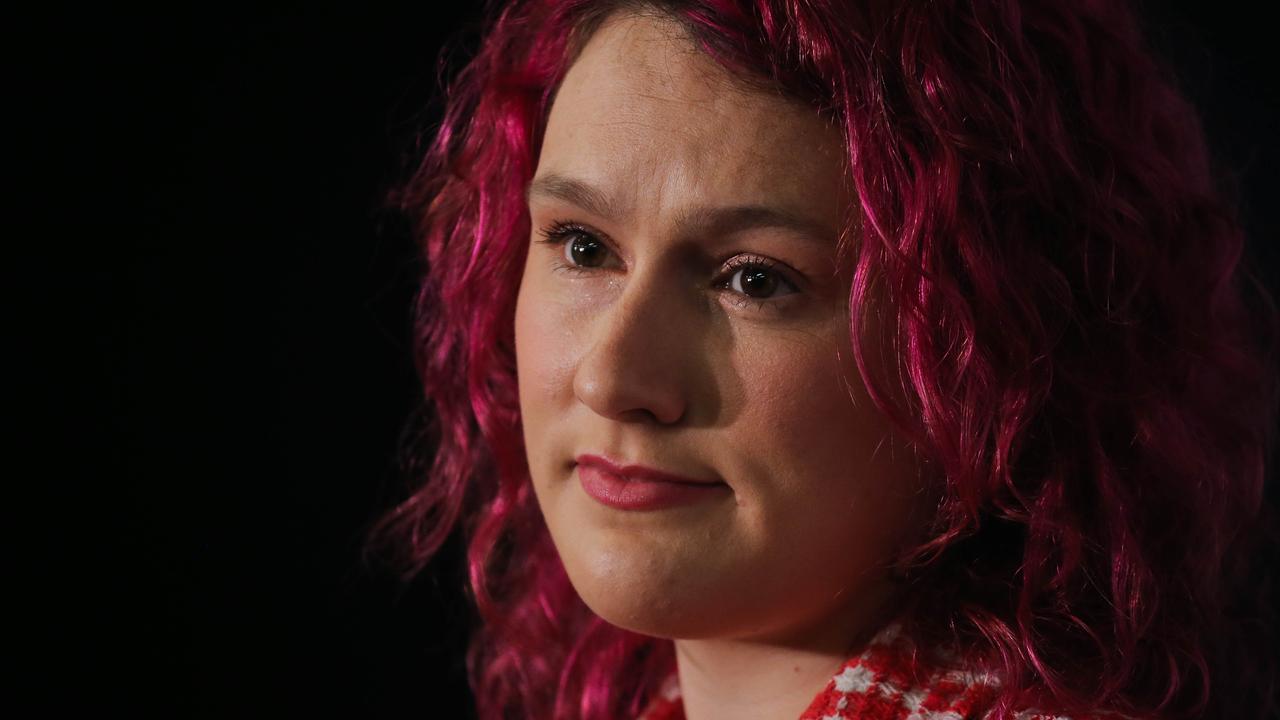
“These courts were not built with survivors in mind. Yes, people might know it’s difficult to go to court and tell your story – but it’s also difficult to walk in hallways and see [the accused] and his family. It’s also difficult to sit in a witness room with other witnesses and victims – who are completely unrelated to your case – who are going through their own horrible day,” Saxon says.
Both Pippa and Rose experienced similar scenarios, running into the adult man charged with sexually abusing them in the court foyer, and later sitting in a witness room for hours on end, alongside other highly distressed children there to give evidence in their own sexual abuse trials.
Eventually, the man would be found guilty of six counts of aggravated indecent assault against Pippa. He was acquitted of four charges of aggravated indecent assault in relation to Rose.
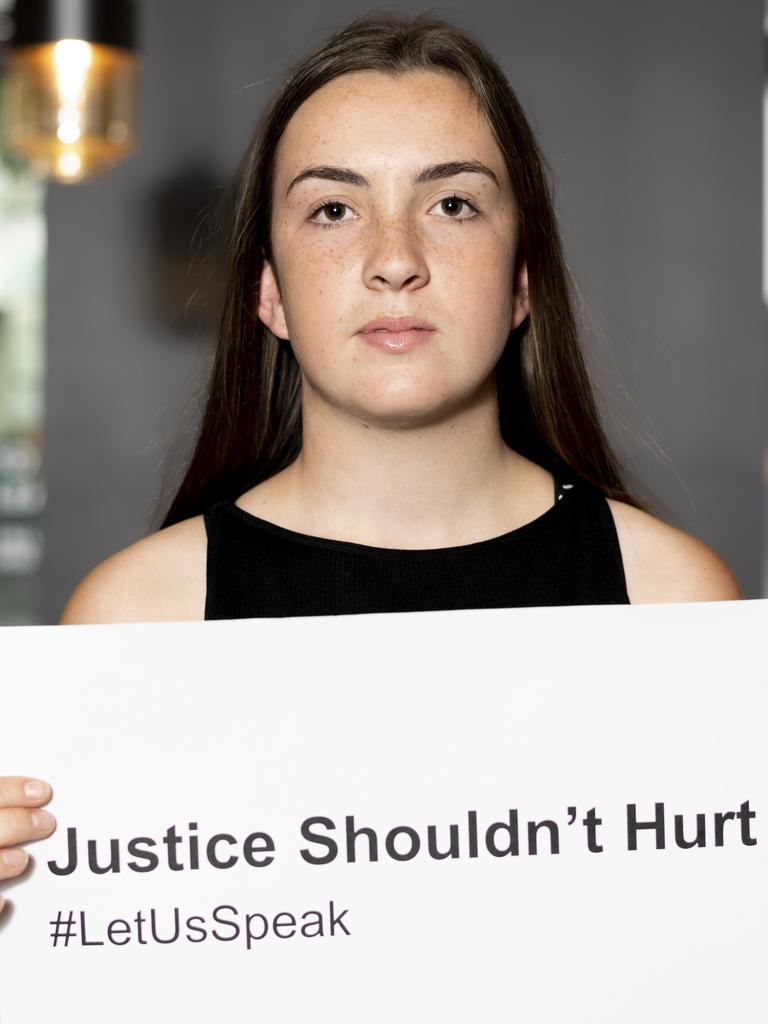
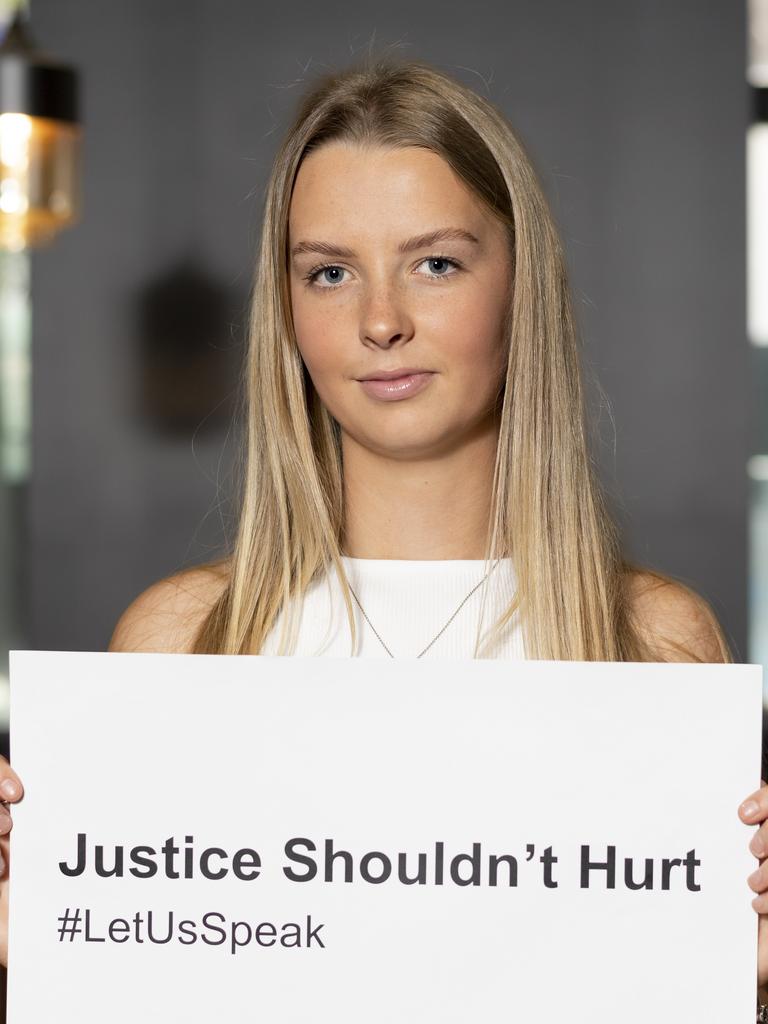
“When you’re in those waiting rooms, sometimes for whole days – sitting through delay after delay – it’s like waiting for your death march,” Saxon says.
“It’s a horrible feeling of suspense, like going up a roller coaster – going up and up -and never knowing when it’s suddenly going to drop.
“That’s what happened to me as a grown person and yet we expect children to walk in there, tell the most traumatising moment of their lives, and walk out well adjusted. How do we think that is going to happen?
“Even if you get the ‘justice’ of a conviction, if you leave ten times more traumatised than you walked in, and if the justice you get costs you everything, how can that be worth it? How is this the system that we have created? That in order to keep others safe you have to destroy yourself?”
‘Frankly inhumane’
Bri Lee, 30, is a survivor of child sexual abuse and the author of best-selling memoir Eggshell Skull. She has seen this issue from many angles: before reporting her own sexual abuse to police in 2016, she worked as a judge’s associate in Queensland, overseeing multiple child sexual offence matters.
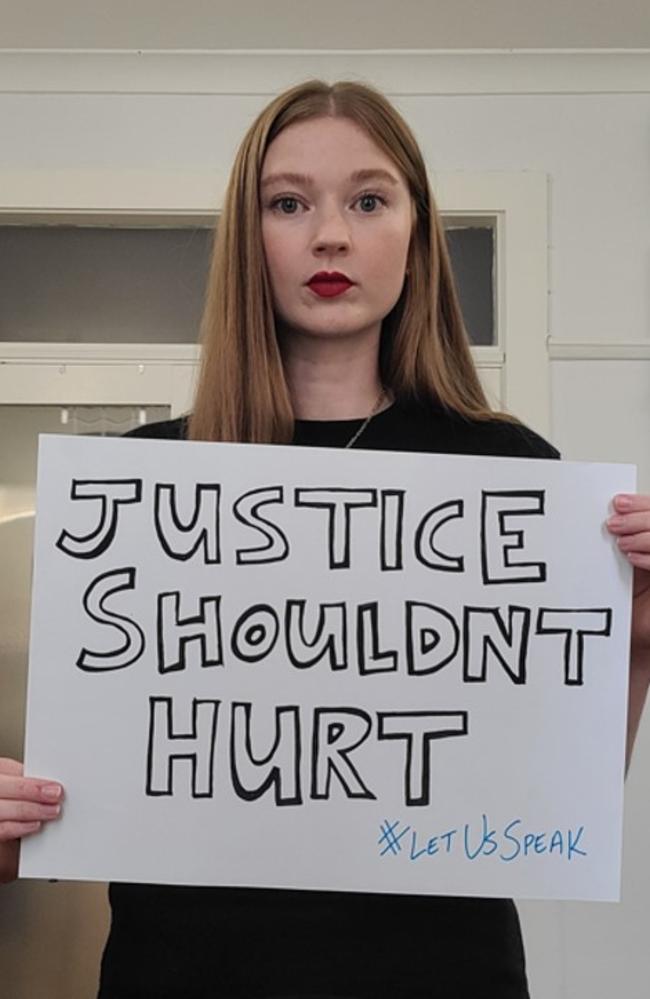
Now the non-practising lawyer and academic has thrown her full weight behind the program and the Milthorpe sister’s petition.
“It’s a no-brainer, it’s evidence based. If it were up to me it would be nationwide but NSW is a great start,” Bri says, whose offender was ultimately convicted by a Queensland court.
“It’s not always the case that complex problems have clear solutions but in this instance we know what needs to be done and the only problem is effort and commitment.”
Bri says that one of the many appealing aspects of the program is that it ensures that delays are reduced and that children’s engagement with the court process is completed as quickly as possible.
“The delay is one of the worst bits. My matter took two years, but it can easily take three, four or five years. I know what it feels like to fight the urge to put the rest of your life on hold and that is almost impossible as an adult.
“The thought of a child going through multiple school grades, going from primary to high school – at such critical stages of personal, educational, and societal development – while having a sexual assault court case hanging over their heads for years is frankly inhumane.
“I had really compelling evidence – as I did a pretext phone call in which the offender made an admission – and yet it still took two years.
Bri says the delays force survivors to “constantly remember and relive the worst thing that ever happened to you”.
“When it hits the magistrates court it’s four weeks and then another mention, and six weeks and another mention and so on. Every time you get a call, it’s like getting smacked up the side of the head. It’s cruel. It gives you this feeling you can’t escape.”
Like Bri, both Rose and Pippa Milthorpe had to wait two and a half years between reporting the abuse to police and the matter going to court. For Rose, who was five at the time she reported, that meant spending over one third of her life waiting before the court case began.
Unsurprisingly, her memory had degraded somewhat, and the accused was only found guilty in relation to the crimes against her older sister.
Join the movement and sign the petition here.
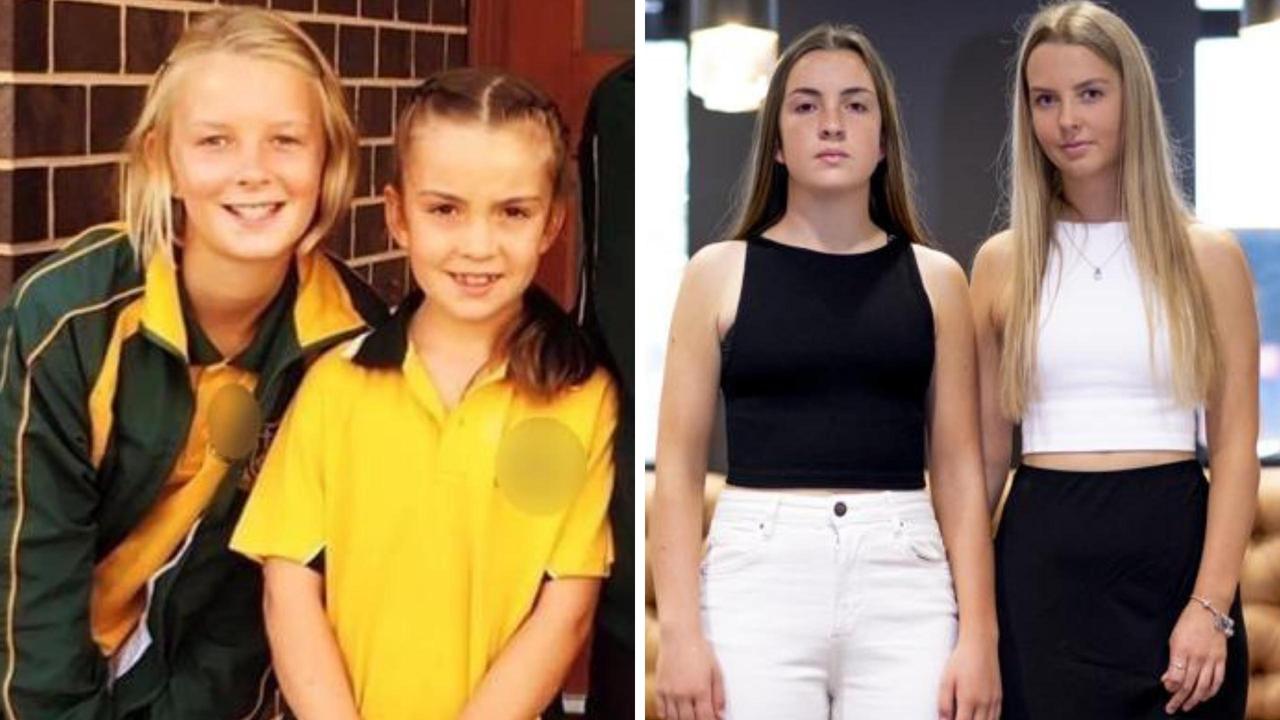
Bri says this is not uncommon. “The justice system is clogged. It is not in the interests of justice for multi-year delays as memory does fade and those delays are only in the interests of defendants.”
Bri says that another concern is the “huge range of conduct that is currently considered to be acceptable in terms of cross examination technique.”
“Judges and barristers are not experts in child development and frankly it would be unfair to expect them to be without extra support and training. That is a whole distinct area of expertise.”
But the lack of training has resulted in inconsistencies in how children are treated as this is left up to the discretion of individual judges.
“It is entirely possible to gently and with compassion test the prosecution’s case in as short an amount of time as possible, with no raised voices, with no accusatory questions, with no badgering or repeat questions,” Bri says.
“But that is up to individual counsel and judges to decide, based on what their personal ethical framework will allow.
“For me, cross examination nearly broke me and I had everything. I had witnessed cross examinations, dozens of them, I knew the lay of the land, I knew the language of the court. I was a fully grown adult. And I found it terrifying, disturbing and retraumatising. The thought of a non-lawyer, let alone a child, going through it is extremely upsetting.
“Children have already suffered. We make them suffer further every day the system is the way it is. We can never undo the original harm but we are certainly falling far short of our moral obligation not to do any further harm.”
‘I spent my 18th birthday on the stand being ripped to shreds’
Janelle O’Connor is a survivor advocate from Burnie, Tasmania. In 1993, at age 16 she was abducted on Christmas Eve, driven to a paddock and gang raped.
The schoolgirl would then spend years in and out of the courthouse, giving evidence five times across three trials, after the first two trials both resulted in mistrials. Eventually two of her rapists were found guilty while a third was acquitted on appeal.
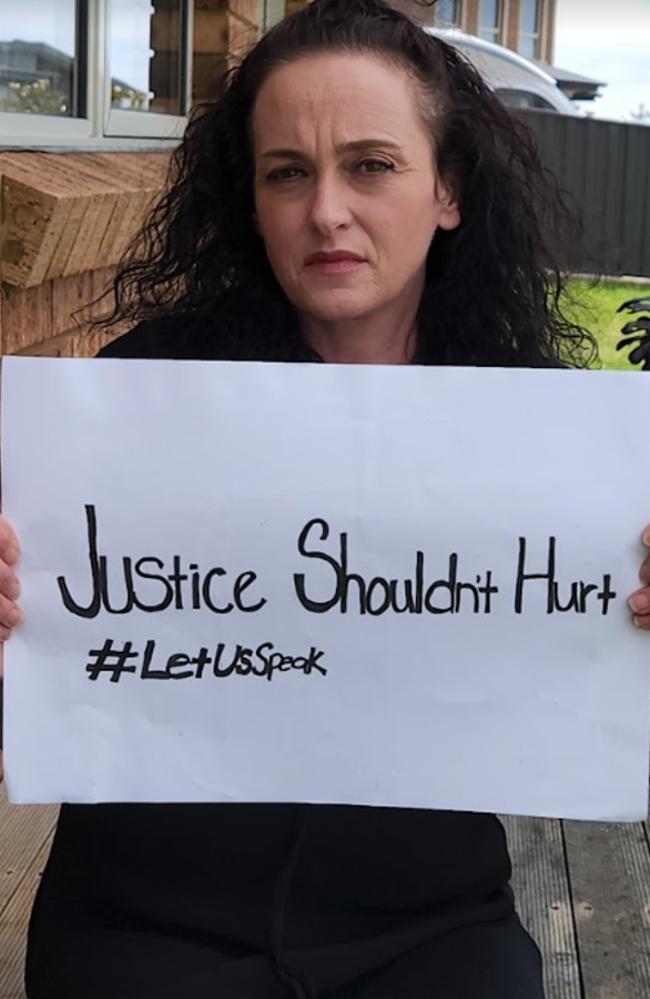
“Back then, it was an open court and anyone off the street could walk in and sit down and watch while I was giving evidence. And they did,” Janelle says.
“At 16, it was embarrassing because I had to go into details of what was done to me and people from Burnie who would just walk in and watch.
“I sat not even ten feet away from the men who raped me and they actually had police standing between them and me because they were worried one of them would jump up and do something.”
“It was brutal. It was like being raped all over again. I then spent all day on my 18th birthday on the witness stand being ripped to shreds by three criminal lawyers.
“That day, my 18th birthday, was the day they really tried to break me. It was extremely abusive. They would yell and scream. I could feel the anger in the questions towards me.”
While Janelle says she is pleased that courts have now introduced remote witness facilities to help support sexual abuse survivors give evidence, this alone will not prevent all the trauma of court.
“The whole process of the judicial system is cruel. It’s like you’re on trial. You try to start getting on with your life but then they appeal and then there are retrials.
“When it comes to children the whole system needs an overhaul. It’s cruel to put a child through. As a teenager it’s scary, but as a little child, it’s an adult world, there are adults everywhere and you’re the only child there that day. It’s an unrelatable world.”
Janelle says if the NSW Attorney-General does not get this right, children who go through the current system will be paying the price for decades to come.
“Thirty years on, I still remember every single thing that happened in court, like it’s a movie in my head that replays and replays. I remember the questions they asked me, the theatrics, how they would slam their hands down and call me a liar. I haven’t forgotten a thing.”
‘Courts are not safe environments’
Nicole Lee is a sexual assault survivor and disability advocate. She supports the Milthorpe sisters’ call for more witness intermediaries, and adds that courts also need to be made child-friendly.
“Courts are not safe environments; they are cold and clinical and grey. They are not safe and they are not welcoming,” Nicole says.
“You are throwing children into a very adult legal world which is not geared up to support children, let alone children with trauma. Putting a box of toys in the corner and a packet of crayons on a desk does not make it child friendly.”
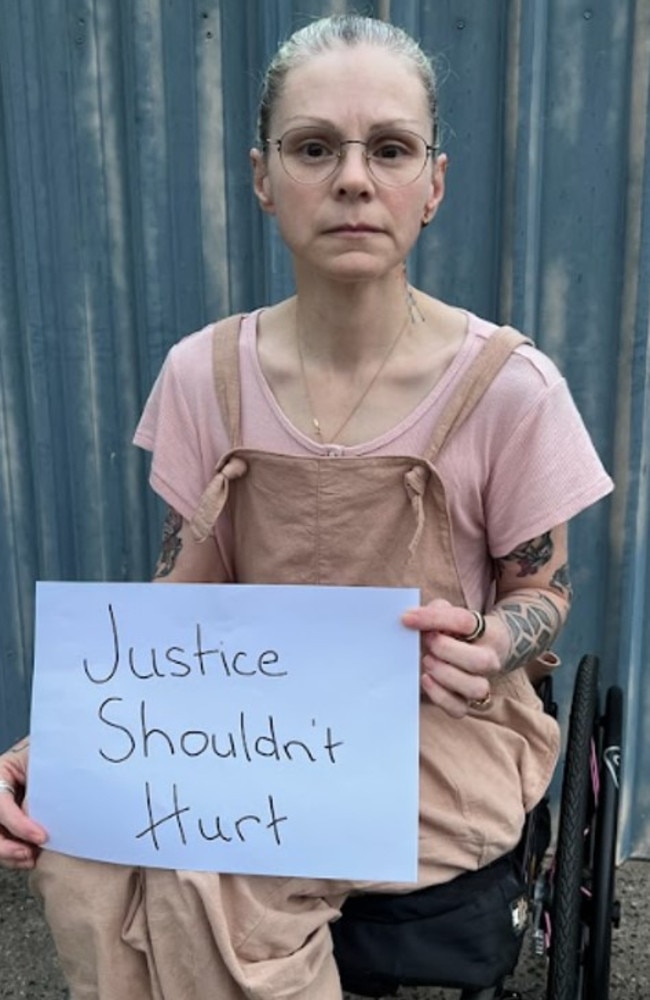
Nicole says that there is an abundance of research overseas which demonstrates that architecture, colour and design can significantly impact on how children and other victims of violent crimes feel confident to engage within legal settings.
“A well developed thought out space would be one which is welcoming and warm, that looks more like a setting befitting that you would expect to find in a childcare centre, with warm colours, soft furnishings, inviting textures, weighted blankets, modular furniture which children can build something to hide in- or a Teepee -if that is what is needed.”
This idea might sound radical to some but experts say that thoughtful design can help children give clearer evidence, which is ultimately in the interest of justice.
“The style of the room should not be the reason a case falls over,” Nicole says.
“By the time many [sexual abuse complainants] get into a courtroom or remote witness room, their mental health is already in a very bad state. Some people will come into that room and completely dissociate, and then you feel like a failure, like you couldn’t do it.
“I was told you have to keep it together or the whole thing will fall apart. There is no ‘try again’. It was, ‘can you get your sh-t together? OK, nup? Alright done. Here’s a box of tissues.’
“We need safety strategies to help support you, and reorientate you towards what is going on in the room.”
Nicole’s experience of cross examination went for over a day and a half.
“I was alone with one person in a remote witness room. I was not allowed to look sideways or I would be accused of coaching,” Nicole says.
“It’s traumatic. You’re struggling, you’re stressed, your anxiety and trauma is going through the roof. You’re trying to focus on the questions, you’re trying to look for support, you don’t want to be alone answering those questions, you just want to get a human response which is validating and empathetic. Instead you get to look at the defence barrister on a black and white blurry screen.
“What we need is a safe supportive environment, which is designed to de-escalate panic and trauma, and help bring someone back to the here and now. A box of tissues and a pat on the shoulder is not trauma informed.
Nicole says she is proud to support the Milthorpe sisters in their call for reform.
“The NSW Government needs to sit down with these girls, look at this program, and fully fund its roll out. It needs to be across the state because sexual assault doesn't happen in one place. Children aren’t abused in one place, so justice shouldn't be confined to one place.”
Join the movement and sign the petition here.
Nina Funnell is a Walkley Award winning journalist and sexual assault survivor advocate who has created the Justice Shouldn't Hurt Campaign in exclusive partnership with news.com.au.
Contact us: ninafunnell@gmail.com
Read related topics:Justice Shouldn't Hurt




